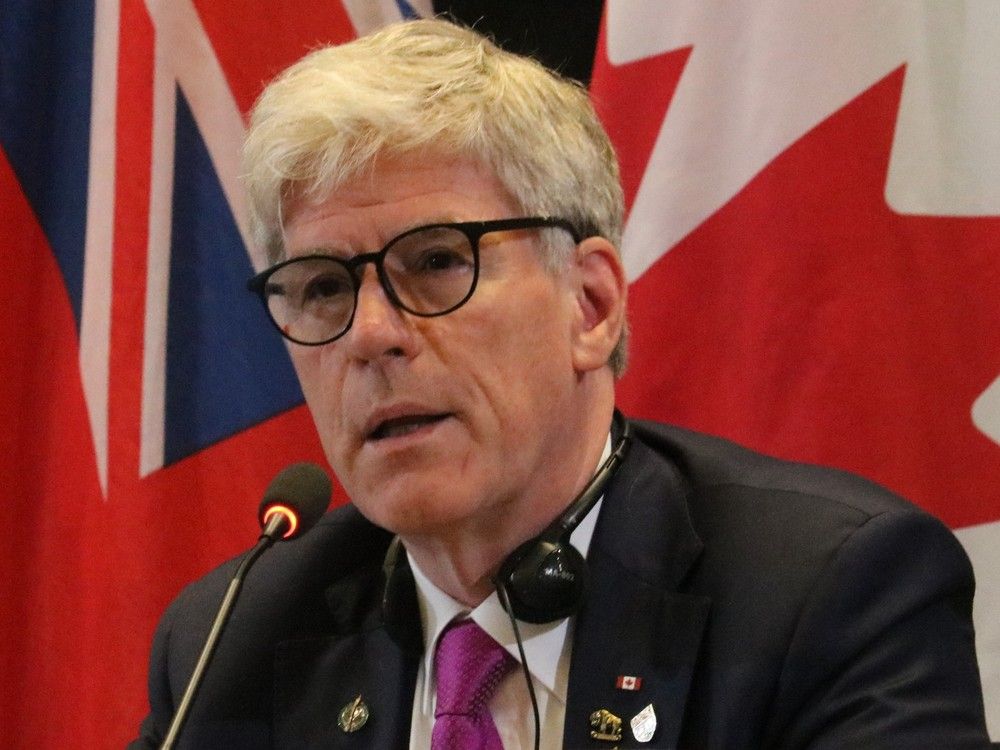Mountain Man
Senior Member
The one thing I wonder is if we do get some new pipelines, whether global oil companies will want to have a presence here again.
My understanding: The old growing presence here, leasing land in the oil sands, was a pre-shale phenomenon where to comply with accounting rules which enable listing on stock exchanges, companies needed to demonstrate they were going concerns by maintaining a certain percentage of yearly production as proven reserves. Typically at least 10 years of production, if not more. Oil sands production while expensive is very reliable and requires little investment to classify as proven.The one thing I wonder is if we do get some new pipelines, whether global oil companies will want to have a presence here again.

Hopefully they can make this work. Much shorter route, plus less provinces involved, specifically one particular province.
Arctic port eyed to ship energy, other commodities to Europe: federal energy minister
"There is an opportunity to make Churchill a far more strategic port," says federal Energy Minister Tim Hodgson.calgaryherald.com
If Manitoba is on board then it's going to be a lot easier and quicker for sureHopefully they can make this work. Much shorter route, plus less provinces involved, specifically one particular province.
This doesn’t make much sense to me but if people think they can do it I guess whatever sure go ahead.
Arctic port eyed to ship energy, other commodities to Europe: federal energy minister
"There is an opportunity to make Churchill a far more strategic port," says federal Energy Minister Tim Hodgson.calgaryherald.com
There is no need.I'm having a tough time taking this one seriously, seems more performative than anything.
Overlooking the ice issues, by the time this could get built the Ukraine war will be over and Europe will be back on Russian energy.
The solution to the problem province preventing an east coast energy link is simple, if they don't agree to a no nonsense energy corridor then they can get iced out of theirwelfare paymentequalization money.
There is no need.
Would help to have a proposal first. Energy east was always quite a weak proposition. And that was before its budget started spiralling. TC was looking for a way to kill it without being left with the bill to date for years.
No one has explained how that would actually work beyond magic. Permitting is really technical and you can’t disconnect that from doing the work on the ground. There are ways to do permitting faster but they cost more since it is doing things simultaneously and going back to align things as the preferred alternative evolves.national energy corridor
No one has explained how that would actually work beyond magic. Permitting is really technical and you can’t disconnect that from doing the work on the ground. There are ways to do permitting faster but they cost more since it is doing things simultaneously and going back to align things as the preferred alternative evolves.
I think an all Canadian line to around Cardinal/Iroquois in Ontario is very likely. 700,00-800,000 barrels. Maybe some investigation of whether anyone wants to export overseas from the Montreal tanker loading port currently used to supply Quebec City.
Here is where it falls apart. The permitting is the review and the review is permitting and both interact with consultations.If and when industry decides its build time, then the regular permitting can go ahead without lengthy environmental reviews and native consultations.
Because how can you know impact if you don’t know what is proposed and where.
In the case of a general purpose corridor, who is paying for that? Should the corridor project permit 1 pipeline or 5? What if a sixth comes along? What if the goods shipped change entirely? What if one project has technical characteristics that preclude the others?
Oh. I'm not even talking about acquisition. That is easy, that exists today, and is easy. Who owns the land doesn't make the process harder or easier (though avoiding reserves is advisable). I am talking about doing the archaeology, the natural asset surveys, all the geology and geotech. For all that work, you're building a road down the entire thing.Given that much of a corridor would pass through crown land, I think it's reasonable for the feds to pick up the cost of any remaining property acquisition. That can be their cost share on the project.




